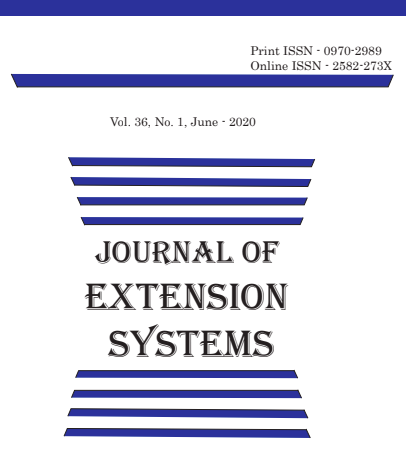Agriculture, Integrated, Convent Livelihood Security of Small and Marginal Farm Families through Integrated Farming System: A Sustainable Approach
DOI:
https://doi.org/10.48165/jes.2025.41.1.2Keywords:
Agriculture, Integrated, Conventional, Farm families, Livelihood securityAbstract
Integrated Farming System is mainly a combination of one or more enterprises with cropping, when carefully chosen, planned, and implemented, provides greater dividends than a monoculture approach or single enterprise, especially for small and marginal farm families. The present study was conducted in Uttar Pradesh, a state in India. A total sample of 100 farm families, i.e., 50 CFS and 50 IFS, were selected randomly. The findings of the study clearly indicate that the livelihoods of IFS farm families were more secure in comparison to those of CFS farm families. The livelihood securities of CFS and IFS farm families had positive and significant correlation with education, monthly family income, land holding, farming experience, livestock possession, possession of agricultural and household assets, social and extension participation, mass media exposure, training exposure, and exposure to e-services.
Downloads
Downloads
Published
Issue
Section
License
Copyright (c) 2025 Journal of Extension Systems

This work is licensed under a Creative Commons Attribution-NonCommercial-NoDerivatives 4.0 International License.

